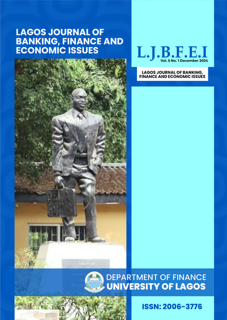ARTIFICIAL INTELLIGENCE AND LABOUR MARKET DYNAMICS IN THE BANKING SECTOR IN LAGOS, NIGERIA
Abstract
The study's general objective is to examine the impact of artificial intelligence on labour market dynamics. It adopted the survey research method as its research design. Its specific objectives among others are to: examine the relationship between artificial intelligence technology and employment rates in the labour market; analyze the relationship between artificial intelligence and job types and occupations in the labour market; and establish the relationship between artificial intelligence technology and worker skills in the labour market. Taro Yamane's (1967) formula was used to derive a sample size of One Hundred and Twenty-Seven (127) staff; drawn from the study population of One Hundred and Eighty-Five (185). Data were collected via a well-structured and tested questionnaire. The data collected were analyzed using Correlation Statistics via SPSS statistical tools. The findings of the study revealed that artificial intelligence has a significant effect on employment rates in the labour market; artificial intelligence has a significant effect on job types and occupations in the labour market; and artificial intelligence has a significant effect on worker skills in the labour market. The study recommends that businesses should prioritize upskilling and reskilling their employees; employers can diversify their recruitment strategies, and adapt to changing market conditions to remain competitive and successful in the labor market; and collaborative effort between stakeholders is essential to ensuring a sustainable and inclusive labor market that benefits society as a whole.

